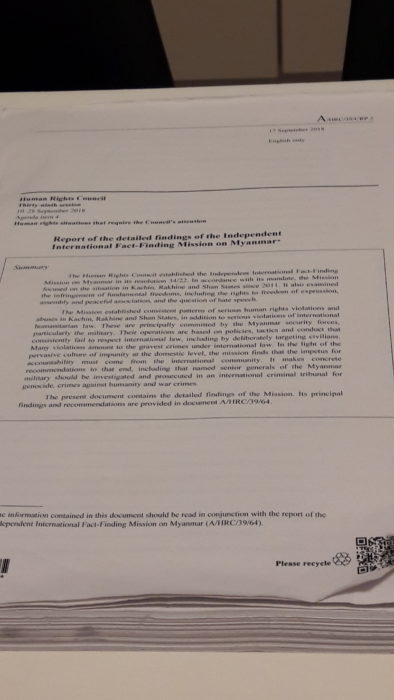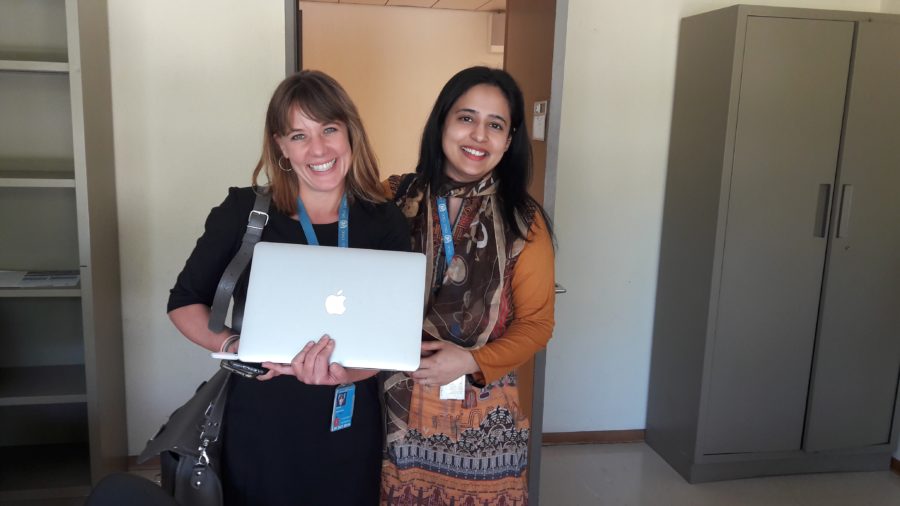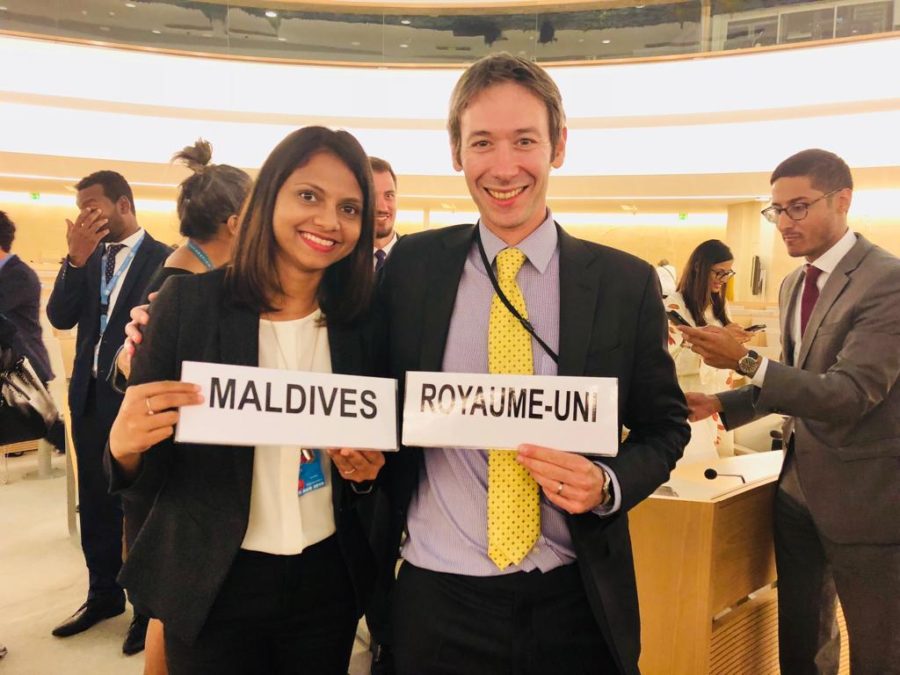2nd October 2018 Geneva, Switzerland
Growing Up

When the US walked out of the Council last session, there were plenty of doom-mongers foretelling the multiple ways in which everything would fall apart, drawing on the Council’s darker moments of its stuttering early years, before the US joined. There may be more testing times ahead, but this was the Council’s most successful session and there was a palpable sense of achievement and optimism among the many tired delegates who had spent the last few weeks toiling on the Council’s big-ticket items. The Council turned 12 recently and it’s really starting to look like it is growing up. Hopefully adolescence won’t be too much of a bumpy ride.
No Council session is without its many stresses, especially in its latter stages. By now, I’ve spent enough time going through the voting process that I’m able to get thought it with a mostly steady pulse. The panic tends to come when I realise that I’ve carelessly lost track of the Ambassador just before he’s due to deliver a crucial statement. It evokes the feeling of rapidly rising dread you get when you lose your 2 year old in the supermarket, as you desperately try to find him or her. Perhaps as part of the Council’s ongoing efficiency drive, we could introduce a supermarket-style Tannoy system to locate errant Ambassadors.
The biggest talking points of the session were on Burma, Venezuela and Yemen.

The outcome on Burma/ Myanmar was the biggest sign of the Council’s growing maturity. The EU and the OIC, under Pakistan’s leadership, put differences aside to co-author a resolution for the first time ever. The outcome was a landmark for the Council – the strongest ever mechanism that it has ever created which will collect evidence and prepare case files to hold those responsible for the horrifying violations to account. This is the first real contribution towards justice for the Rohingya people since the crisis began and was a fitting response to the Fact Finding Mission’s impressive work. 35 Council members voted in favour, despite opposition by China, who could only muster the support of Burundi and the Philippines in voting no. It was disappointing to see Japan and South Africa among seven countries that abstained: their voting positions puts them at odds with the clear condemnation of the international community.

The resolution on Venezuela was just as much of a breakthrough. Country resolutions of this nature are usually the preserve of the west and it was very encouraging to see countries like Peru and Mexico show strong leadership in response to the troubling situation in Venezuela. The resolution will ensure ongoing Council scrutiny over Venezuela’s human rights record – something which is clearly needed given the Maduro government’s refusal to accept offers of outside help.
On Yemen, the differences between the Dutch-led core group and the Arab Group proved impossible to bridge, which led to the adoption of two rival resolutions. The Dutch resolution renewed the mandate of the Group of Eminent Experts which was set up last year, but Saudi Arabia called a vote and it looks as though the key parties to the conflict will no longer cooperate with the Group. The situation in Yemen would have been much better served by agreement on one resolution, but it was not to be.
The Syria resolution passed by a better margin than in June, and demonstrated that the human rights situation remains of high international concern. And important resolutions on Sudan, Somalia (take a bow, Charlie), Burundi, the DRC and the Central African Republic added up to this being the most country-focussed session we’ve ever had at the Council.
Of course there are always situations which don’t get the attention they deserve and this session calls by NGOs for action on both Cambodia and Nicaragua were not taken up. It remains to be seen if there will be a response in March.
In a happy development, the Maldives defied the odds last week and achieved democratic change through its Presidential election despite all attempts to stitch up the result by the outgoing President. It’s a testament to the resilience and commitment to democracy of the people of the Maldives and I’d like to think the ongoing attention we gave through joint statements at the Council over the last 18 months helped to make at least a small difference.
The Council will go into hibernate mode until March, and will see the departures of some excellent colleagues. I wish Guillaume from Mexico, Emre from Turkey, Tamara from Montenegro, Ekaterine from Georgia and anyone I’ve unforgivably forgotten every success with whatever comes next. You’ve all left your mark on the Council and I’m glad we sent you out on a high. Now we’ll have to keep growing up without you.
